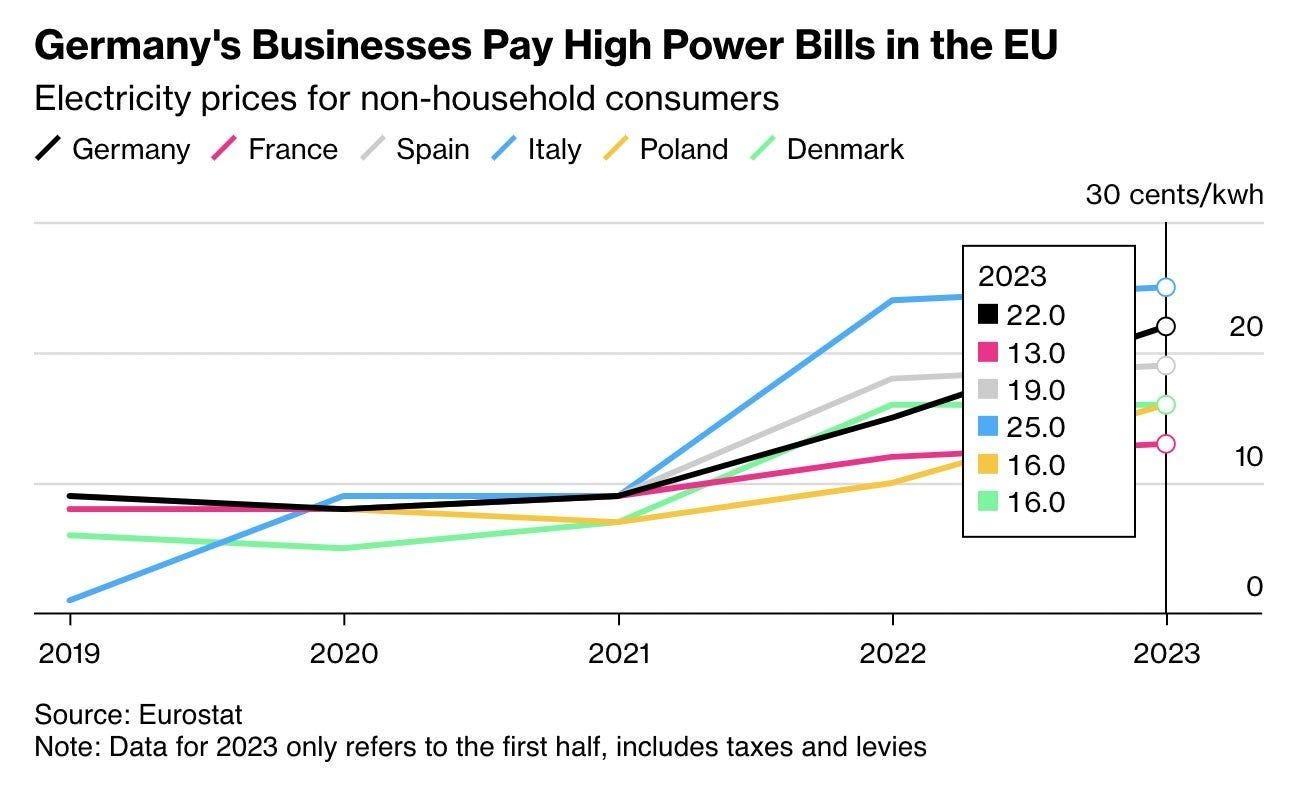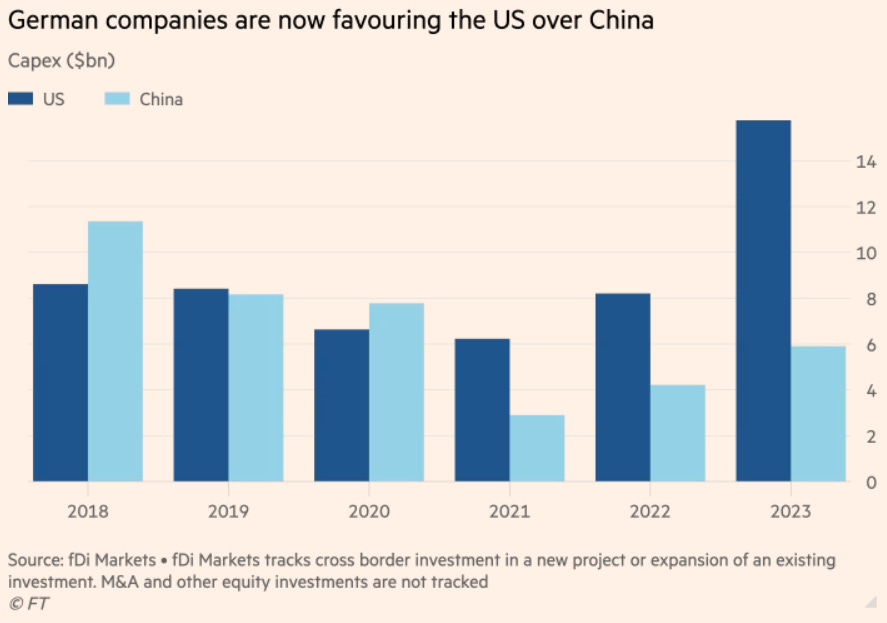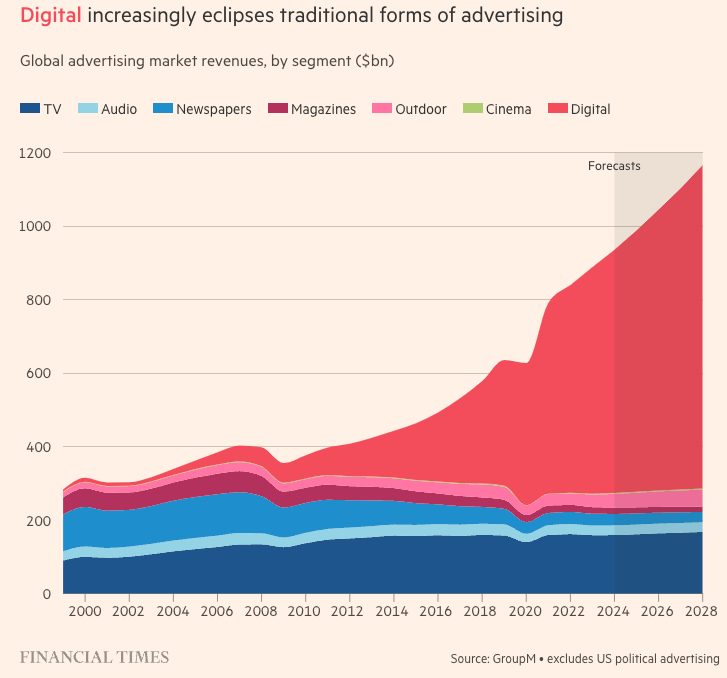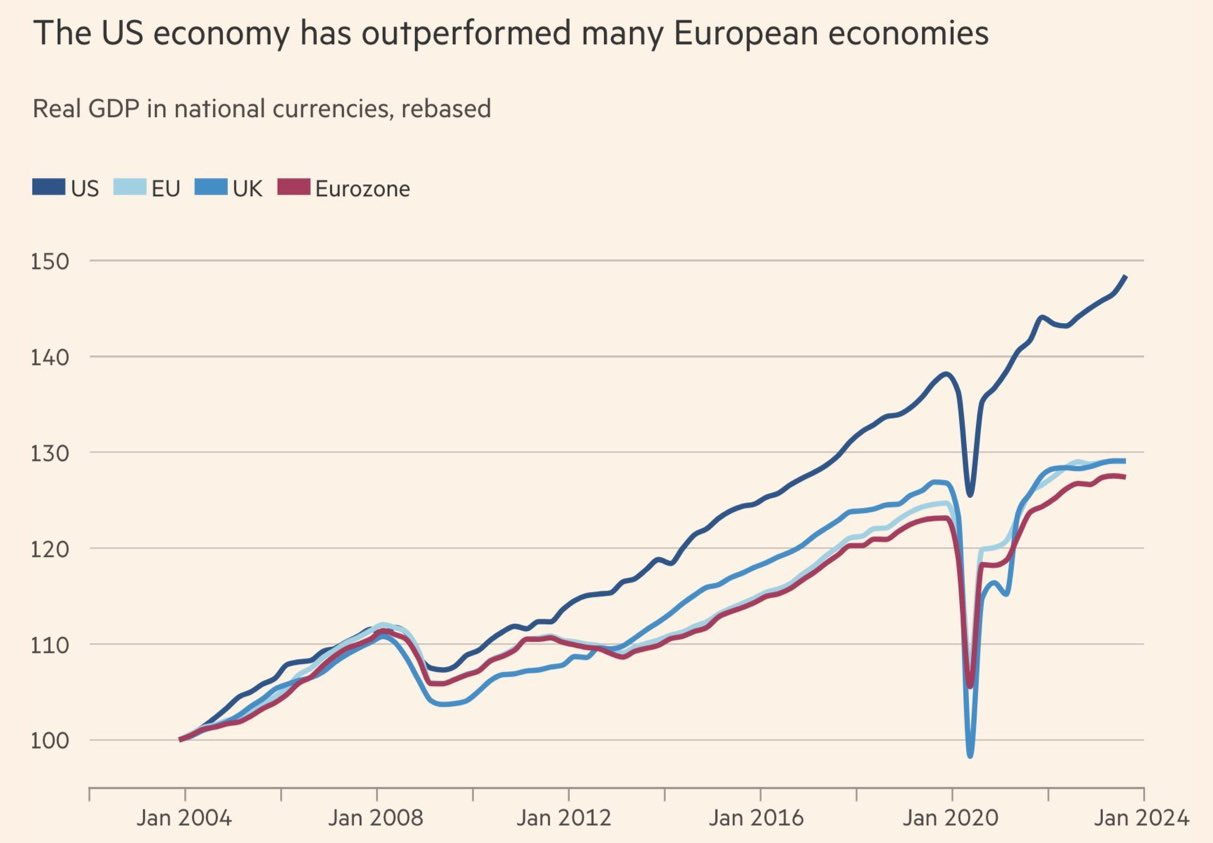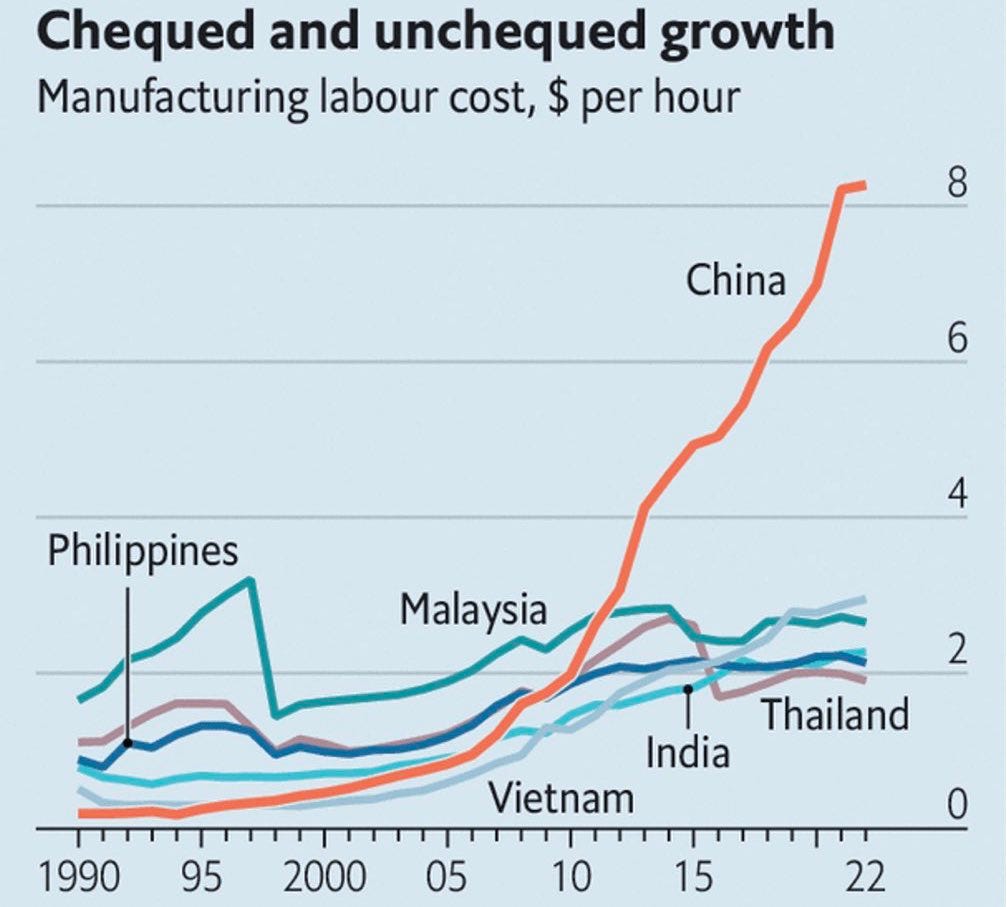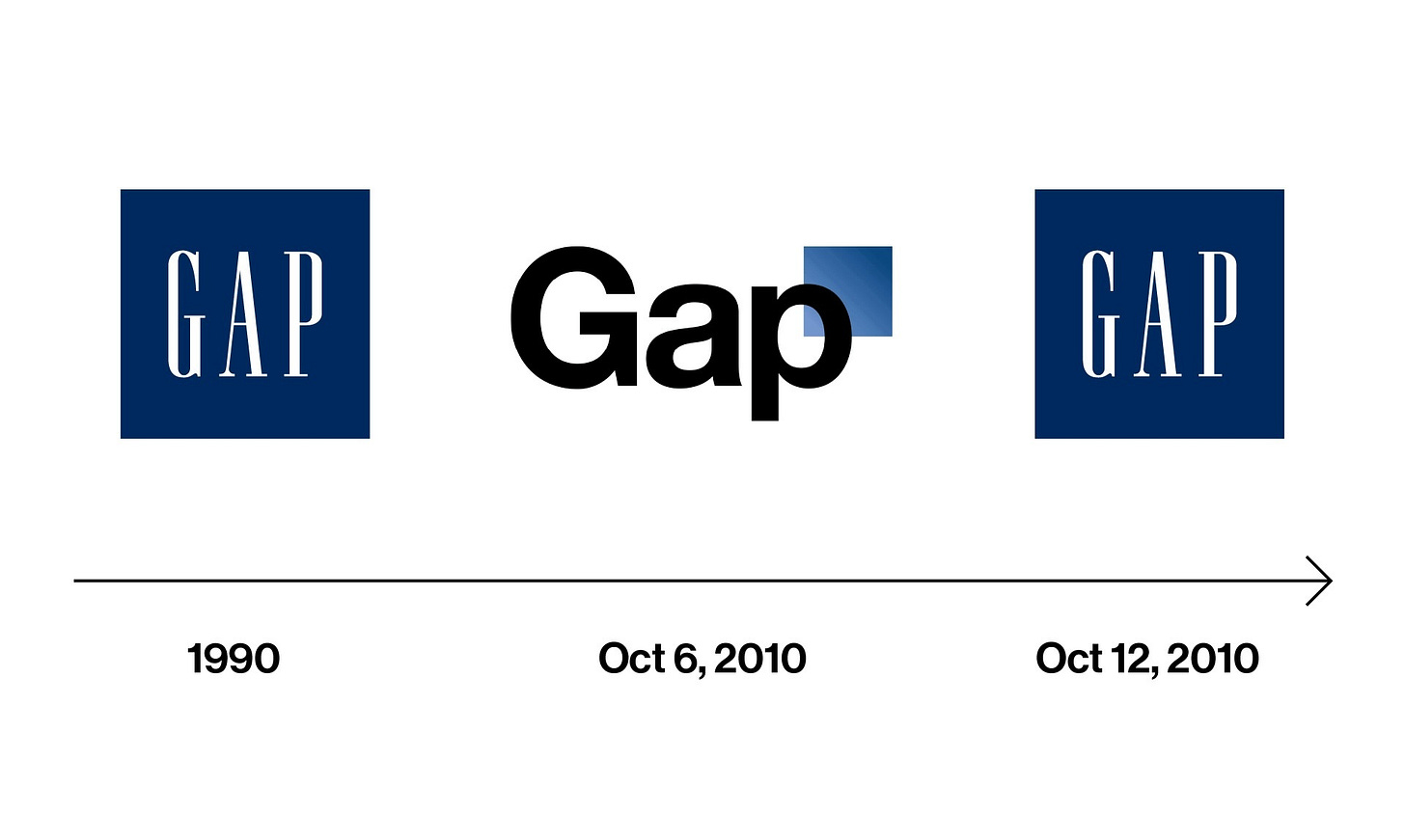(#62) Text-to-Video is here; Zuck against Apple; on Germany; and Steve Jobs on recruiting people
Geopolitics is not the only reason investors are leaving China, but is also much cheaper to produce in SE Asia
Knowledge Partner: EY
Download the latest edition of EY Attractiveness Survey Romania, an in-depth study designed to help businesses make investment decisions.
Findings are based on the views of representative panels of international and local decision-makers. Click HERE.
Today’s menu
Open AI reveals its Text-to-Video model: Sora
Zuckerbrg’s review of Vision Pro
on Germany
AI in developing games
How AI is transforming the business of advertising
Strategy
Open AI’s new market: text to video
The company has launched this week their new text-to-video model called “Sora”. We don’t know yet the costs of using these models, but Ben Thompson wrote a good article about it (building on Matthew’s Ball theory of the metaverse). Here are three takeaways from his article:
1/ Intro: Metaverse is the preferred term for future digital realities.
Matthew Ball's essay underscores the Metaverse as the most fitting descriptor for the evolving digital landscapes, emphasizing its capacity to function akin to the 3D version of the Internet. This comparison highlights the Metaverse's potential for a vast, interconnected network of real-time 3D experiences, suggesting a shift beyond traditional computing and the necessity for significant advancements in networking and computing infrastructures to realize this vision. Matthew Ball
2/ Sora's role in advancing spatial computing and the metaverse.
OpenAI's development of Sora marks a significant step forward in the realm of spatial computing, allowing for the generation of complex scenes and characters with nuanced emotions and interactions. Despite its current limitations in simulating physics accurately or understanding intricate cause-effect relationships, Sora's capabilities in creating immersive, dynamic video content hint at its foundational role in building the metaverse. This suggests a future where AI-generated content could become increasingly sophisticated, making the metaverse more accessible and interactive.
3/ Technological convergence driving virtual reality's evolution
The discussion around Sora, alongside developments in computing hardware like Groq's deterministic processing units, points to a broader technological convergence shaping the future of virtual reality (VR). These advancements suggest that we are moving closer to real-time, interactive virtual environments that could significantly enhance user experiences in the Metaverse. The synergy between AI-generated content, advanced hardware, and VR technologies implies a nearing inflection point where virtual experiences could rival or augment reality, potentially transforming how we interact with digital spaces. Ben Thompson, Groq, Sora
What interesting times are we living!
Mark Zuckerberg (and META)
1/ Everyone was taken by surprise with Zuckerberg did a review on Vision Pro from his coach filmed by a colleague with Quest 3. This reminded me that it’s OK as a leader to be hands-on and at the front of what’s happening and to communicate accordingly. This also reminded me of the pre-registered video presentations made by Apple with weeks (or months) in advance. What a great strategic move from Zuck. LINK
2 /In an interview with The Morning Brew Daily Show, he stated that glasses are the mobile device of the future, and headsets are the laptop of the future. LINK
Building EVs in Europe
I have argued for at least two years that the competitive advantage in making EVs changes and is defined by once in a once-in-a-century platform shift, along with needing a new skillset: software development. LINK
1/ The European auto industry is at a critical juncture, facing intense competition from Chinese manufacturers and Tesla, which highlights the urgent need for innovation and collaboration among traditional carmakers. The industry's exploration of partnerships and tie-ups, including the concept of an "Airbus of autos," signifies a strategic shift towards pooling resources to enhance competitiveness and affordability in the electric vehicle (EV) market. This move is essential to overcome the challenges posed by cheaper and often superior Chinese EVs and to meet stringent emissions regulations without incurring substantial fines.
2/ The slowdown in EV adoption and the evolving market dynamics underscore the importance of agility and strategic adaptation for European carmakers. The discussions around joint EV platforms and the push for cost-effective electric models reflect an industry-wide recognition of the need to share development costs and leverage scale. This strategy is crucial not only for surviving the current market pressures but also for ensuring long-term viability in the face of changing consumer preferences, technological advancements, and regulatory demands. Without a successful pivot to more affordable and efficient electric vehicles, Europe's auto manufacturers risk falling further behind their global competitors and failing to meet upcoming emissions targets. LINK
🇩🇪 on Germany
Two on Germany: one really bad, one OK-aish:
1/ de-industrialization
No energy, no money. Germany’s days as an Industrial Superpower are coming to an end
It is inconceivable to me what happens in Germany on the energy topic. The country prefers to burn coal than to operate the nuclear plants it has remained.
In the meantime, physics Nobel Laureate and former U.S. Energy Minister Steven Chu (under Obama) accuses German Greens of broadcasting "many half-truths" sabotaging German manufacturing and harming the climate by rejecting nuclear in favor of gas.
The challenges facing Germany's manufacturing sector extend beyond energy issues. The country is also grappling with significantly heightened competition from China, a reduction in demand from Chinese markets, and enduring difficulties attributed to its inadequate education system. Bloomberg, Die Welt
Noah Smith has a good article on Germany: “Germany needs to stop messing around!”. LINK
2/ German companies flock to the US with record pledges of capital investment (Hint! Derisking from China is WIP). LINK
Artificial Intelligence
Refund Policies
Air Canada must honor the refund policy invented by the airline’s chatbot (ie. Generative AI). LINK
How AI is changing the business of advertising
1/ The adoption of artificial intelligence (AI) in the advertising industry marks a significant shift toward hyper-personalized and cost-effective advertising strategies. Publicis and WPP's investment in embedding AI into their operations underscores the technology's potential to revolutionize creative processes, making it possible to generate highly tailored advertising on a massive scale quickly and affordably. This strategic pivot reflects an industry-wide recognition of AI's transformative impact, akin to the internet's invention, signaling a move away from traditional advertising methods towards more direct and personalized consumer engagement.
2/ The increasing reliance on AI for creative and operational tasks in advertising agencies presents a dual-edged sword, offering efficiency gains while posing existential threats to traditional roles within the industry. The ability of AI to disintermediate the creative process, demonstrated by instances of brands directly utilizing AI for tasks traditionally handled by advertising agencies, underscores a significant upheaval. This shift challenges the industry's value proposition, suggesting a future where the relevance of traditional advertising executives and their creative concepts may diminish as direct AI applications for marketing strategies become more prevalent and accessible.
3/ The shift towards digital advertising, driven by changing consumer behaviors and technological advancements, is reshaping the advertising landscape, necessitating a strategic realignment by agencies. The dominance of digital platforms in advertising revenue and the projected growth of digital advertising underscore the urgency for traditional media and advertising agencies to adapt to this digital transition. While the industry faces challenges from the decline in traditional advertising mediums and the direct-to-consumer capabilities offered by digital technologies, there remains optimism. Opportunities for innovation and the integration of AI into creative processes suggest a future where advertising agencies can leverage technology to enhance their offerings, despite the potential for job displacements and the need for agencies to evolve their business models to stay relevant in a rapidly changing digital environment. LINK
AI in gaming
Andrew Chen (a16z) has a long post about the impact of generative AI in gaming. Here are three conclusions:
1/ Resistance to change
The entertainment and gaming industries are experiencing what is known as the Innovator's Dilemma, where established companies are hesitant to embrace disruptive technologies like AI due to the risks associated with pivoting from successful, traditional business models. This reluctance is further compounded by internal resistance, such as legal concerns over IP ownership, creative pushback, and the challenge of integrating AI into existing product lines without merely treating it as an add-on feature. This situation creates a gap in the market for nimble startups that are willing to experiment with AI-first approaches, potentially leading to the creation of new genres and forms of entertainment that are unimaginable today.
2/ Opportunity for startups to lead with AI-first innovations
The slow adoption of AI by incumbent companies opens up significant opportunities for startups. Startups, unburdened by legacy operations and more willing to take risks, can explore AI's potential to create new types of gaming and entertainment experiences. These could range from AI-powered narrative games with rich, dynamic storylines to ephemeral content tied to current events, appealing to niche audiences. The agility of startups to navigate legal uncertainties and innovate with AI at their core positions them to redefine the entertainment landscape, making them potential leaders in the next generation of entertainment.
3/ Talent and technology accessibility challenges
The difficulty of recruiting skilled AI engineers is a universal challenge but is particularly pronounced for established companies in the entertainment and gaming sectors. These companies often cannot offer the same level of equity upside or innovation potential as startups or tech giants, making it harder to attract top talent. Additionally, the apprehension among creatives and designers regarding AI's impact on their work further complicates efforts to integrate AI into traditional entertainment and gaming companies. This talent gap offers startups an advantage, as they are typically more flexible and can create cultures that attract the necessary technical and creative talent to innovate with AI. LINK
Chat GPT in class
Two years ago, Daniel Herman (from The Atlantic) predicted that ChatGPT would mark the end of high-school English. Last year, he wrote that we might already be witnessing its rebirth. LINK
Things happen
The game KingMakers is available on Steam, after 5 years in the making. Wow! LINK
China exerts grip on tech as Beijing expands economy control. LINK
How much do engineers, software developers, and analysts make at Apple? LINK
Ozempic makes fast-food makers look for healthier alternatives. LINK
Data
Key suppliers in building Vision Pro
Quartr did a great job presenting this info chart

No innovation, no growth
There is a price for overregulation and lack of innovation in Europe
Renewable energy
Renewables (50%) and nuclear (21%) generated 71% of Spain's electricity for all of 2023!
Cost of labor in China
Geopolitics is not the only reason investors are leaving China, but is also much cheaper to produce in SE Asia.
Outside Interest
on Disinformation
The Washington Post has obtained Russian documents that show the Kremlin is orchestrating an extensive disinformation operation in Ukraine, Europe, and globally. This operation involves the release of numerous deceptive media articles, fabricated news, and social media content created by a vast network of Russian "trolls." The goal behind these efforts is to undermine the Ukrainian government, create divisions among the elite, demoralize military forces, and confuse the Ukrainian population. LINK
Steve Jobs on recruiting people. LINK
Salt Bae’s restaurant makes £3.3m profit despite two-star reviews. LINK
In 2010, Gap experienced a significant setback with a rebranding effort that was poorly received, costing the company millions. The global negative reaction prompted the company to abandon the new logo and return to its previous branding just six days after the launch.
Thank you for being an onStrategy reader!
Interesting newsletters 💡
Sharing is caring
☕️ Did you enjoy the newsletter? Buy me a coffee ✅








